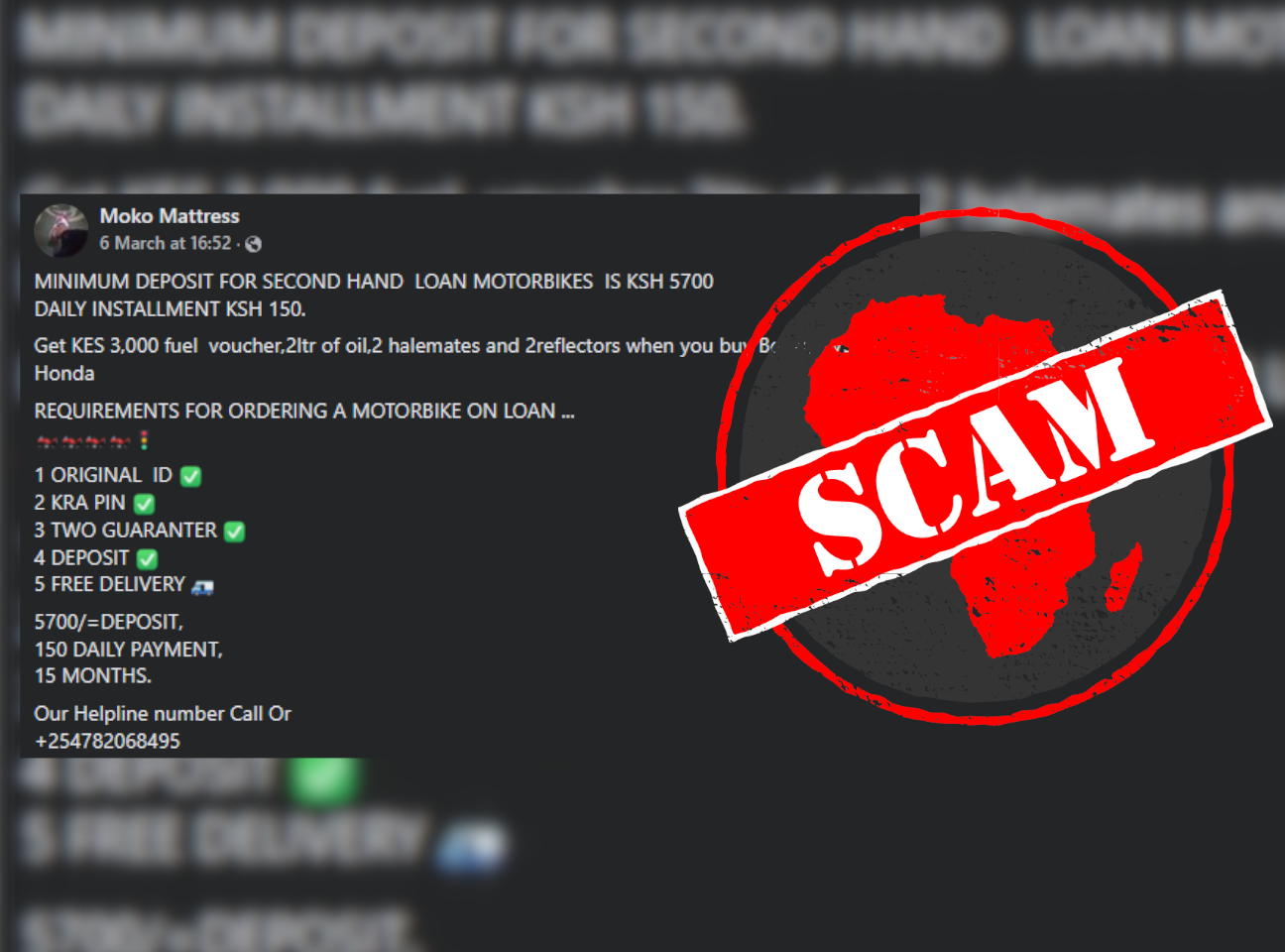IN SHORT: Kenyans should be sceptical about random Facebook accounts offering easy credit for various products. This Facebook account offering motorbikes on credit should be ignored.
The Facebook account Moko Mattress offers Kenyans different brands of motorbikes on credit.
The account uses the name of Moko, a well-known furniture brand in Kenya, to run the offers.
According to the account, Facebook users interested in the offers have to submit their identity documents, Kenya Revenue Authority (KRA) details, identify two people to guarantee the loan and pay a deposit for the motorbike.
It promises users who accept the offer a fuel voucher worth KSh3,000 (about US$21.6), two litres of oil, helmets, reflective vests and free delivery.
The account has posted the offers here, here, here, here, here and here.
But can the account and its offers be trusted? We checked.

Imposter account
Although the account uses Moko’s name, it doesn't link to the company's website.
Its adverts are poorly written. For example, one of the ads misspelled the word “helmets” as “halemates” and “guarantor” as “guaranter”. The adverts also feature randomly capitalised words and odd punctuation. This is uncharacteristic of adverts from a legitimate business.
The account’s supposed business is not branded. It lacks key elements, such as a logo and colours, that would normally identify a legitimate business. This is a big red flag.
We visited Moko’s website and found links to its official social media accounts, including Facebook.
Its official Facebook page has more than 169,000 followers. The contact number on the official website and page does not match the one on the fake account.
All signs point to a fake account with fake offers.
Republish our content for free
For publishers: what to do if your post is rated false
A fact-checker has rated your Facebook or Instagram post as “false”, “altered”, “partly false” or “missing context”. This could have serious consequences. What do you do?
Click on our guide for the steps you should follow.
Publishers guideAfrica Check teams up with Facebook
Africa Check is a partner in Meta's third-party fact-checking programme to help stop the spread of false information on social media.
The content we rate as “false” will be downgraded on Facebook and Instagram. This means fewer people will see it.
You can also help identify false information on Facebook. This guide explains how.




Add new comment